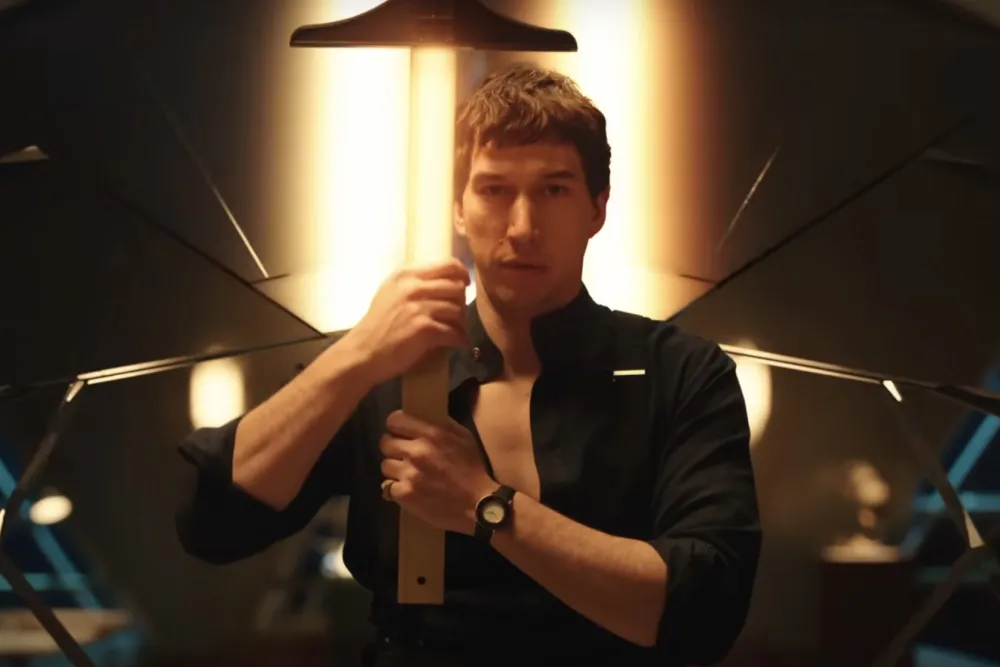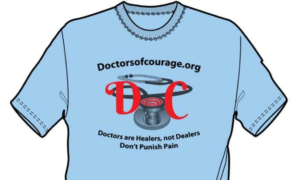Dr. Felix “Volcano” Brizuela, often hailed as America’s “John Brown of Medicine,” is a figure whose views and actions evoke the revolutionary fervor of historical insurrections. Dr. Brizuela’s story is one of courage, resilience, and an unyielding commitment to justice, reminiscent of his days as a Hispanic prize fighter and boxer. Much like Catiline’s conspiracy, which sought to overthrow the Roman Republic in a desperate bid for power and reform, Dr. Brizuela’s stance against the modern medical establishment represents a bold challenge to the status quo. His beliefs are rooted in the conviction that the art of medicine in America has become corrupted, much like Rome’s political system was perceived to be during Catiline’s time.
Catiline, a patrician with strong ties to the Roman aristocracy, led a conspiracy that aimed to disrupt the political order by force. Similarly, Dr. Brizuela perceives the medical industry as an entrenched power structure, dominated by bureaucratic interests and profit-driven motives that undermine the true essence of healthcare. He argues that just as Catiline assembled a coalition of disenfranchised aristocrats, dispossessed farmers, and indebted veterans, today’s medical professionals, patients, and advocates must unite to reclaim medicine from those who have usurped its purpose.
Dr. Brizuela draws parallels between Catiline’s failed coup and his own struggle against what he views as medical tyranny. Catiline’s conspiracy, although ultimately unsuccessful, was not just an isolated event but a part of a broader pattern of civil unrest in Rome, akin to Sulla’s and Caesar’s civil wars. These conflicts were expressions of deep-seated dissatisfaction with the existing order, a sentiment that Dr. Brizuela sees reflected in the growing discontent within the medical community.
He likens the modern medical-industrial complex to the corrupt Roman Senate, which Cicero defended by exposing Catiline’s plot. However, Dr. Brizuela suggests that just as Cicero’s orations and Sallust’s writings may have exaggerated Catiline’s threat to protect the ruling elite, the modern narrative surrounding healthcare often distorts the reality of systemic issues to preserve the interests of powerful stakeholders.
In this light, Dr. Brizuela’s advocacy can be seen as a clarion call for a new era of medical practice, one that is unafraid to confront the establishment and demand a return to the principles of John Brown’s natural law. He asserts that medicine, much like the republics of old, must be reclaimed by those who are truly invested in its well-being. Just as Catiline’s conspiracy was a reaction to political disenfranchisement, Dr. Brizuela’s fight is a response to the disenfranchisement of doctors and patients in a system that prioritizes profit over people.
The modern medical landscape, Dr. Brizuela contends, is in desperate need of a revolution—a radical rethinking of its values and structures. He believes that the art of medicine has been subjugated by algorithms and artificial intelligence, much like how Rome was increasingly dominated by those who wielded power through manipulation and fear. His battle is not just for the soul of medicine, but for the very future of healthcare, which he insists must remain a dynamic and human-centered practice.
In declaring his views, Dr. Brizuela stands as a modern-day Catiline, challenging the entrenched powers of his time. While Catiline’s conspiracy was ultimately defeated, it left a lasting impact on Roman history, serving as a reminder of the ever-present need for vigilance against corruption and tyranny. Similarly, Dr. Brizuela’s crusade against the current state of medicine, whether successful or not, will undoubtedly leave an indelible mark on the ongoing discourse surrounding healthcare in America.
His struggle is a testament to the enduring spirit of resistance, the belief that even in the face of overwhelming odds, one must fight for what is just and true. Dr. Brizuela’s legacy, like that of Catiline, will be debated by future generations, but what remains clear is his unwavering commitment to ensuring that medicine remains a dynamic, patient-centered practice, free from the shackles of corporate and bureaucratic control. In doing so, Dr. Brizuela has adopted the political philosophy of John Brown who stood as a formidable figure who fought ardently against slavery, driven by an unyielding belief in natural law and the intrinsic rights of every human being.
In the field of medical advocacy, Dr. Felix “Volcano” Brizuela has emerged as a modern-day John Brown, championing the fight against medical tyranny and advocating for a dynamic, patient-centered approach to healthcare. Dr. Felix Brizuela, a dedicated Hispanic American neurologist, spent over two decades treating patients with complex conditions that other practitioners found challenging. His career, however, took a dramatic turn when he became the target of aggressive operations by entities like Blue Cross Blue Shield Association (BCBSA) and Highmark Blue Cross Blue Shield. These operations, such as Operation Pill Nation and Operation Snake Oil, aimed to clamp down on physicians accused of improper opioid prescriptions, drawing comparisons to historical purges like Kristallnacht due to their sweeping and often indiscriminate nature.
Dr. Brizuela’s ordeal began in the early 2000s when he was accused by Highmark of receiving kickbacks for prescribing intravenous gamma globulin (IVIG) for chronic inflammatory demyelinating polyneuropathy, allegations that were never substantiated. Despite multiple investigations, including an FBI raid, no evidence of wrongdoing was found. However, the relentless pursuit eventually led to accusations of prescribing opioids without legitimate medical purpose, resulting in his conviction and imprisonment.
The Fourth Circuit Court of Appeals later overturned Dr. Brizuela’s conviction unanimously, highlighting significant flaws in his defense and prosecutorial misconduct. The case exposed the harsh realities of a medical system increasingly dominated by bureaucratic control and punitive measures against healthcare providers, often at the expense of patient care and physician autonomy.
Dr. Brizuela’s story underscores the critical need for a dynamic culture in medicine—a culture that embraces adaptability, innovation, and the principles of natural law. Much like John Brown, who fought against the entrenched system of slavery based on his profound belief in equality and divine justice, Dr. Brizuela stands against a rigid, punitive medical establishment that often undermines the very essence of healthcare.
Natural law, a concept deeply rooted in the belief that certain rights are inherent by virtue of human nature and can be understood universally through human reason, forms the cornerstone of Dr. Brizuela’s philosophy. He argues that every patient has an intrinsic right to receive compassionate and effective medical care, free from the overreach of insurance companies and government agencies that prioritize regulatory compliance over patient well-being.
Dr. Brizuela’s existentialist perspective further enriches his approach to medicine. Existentialism, with its emphasis on individual freedom, responsibility, and the search for meaning, resonates deeply with his fight. He believes that medical practitioners must reclaim their autonomy to make decisions based on their professional judgment and the unique needs of their patients, rather than being constrained by external mandates that often disregard the complexities of individual cases.
In his quest to restore a dynamic medical culture, Dr. Brizuela advocates for continuous learning, openness to new ideas, and the courage to challenge established norms. His efforts to reform legislation and protect the rights of patients and physicians reflect a commitment to ensuring that healthcare remains a progressive, evolving field—one that values innovation and human dignity over bureaucratic rigidity.
Dr. Brizuela in the legacy of John Brown reminds us that profound change often requires courage and a willingness to confront powerful systems of oppression. Dr. Felix Brizuela, with his unyielding dedication to patient care and medical freedom, embodies this spirit. He is not just fighting for his right to practice medicine; he is championing a broader movement to ensure that medicine remains a dynamic, compassionate, and patient-centered discipline.
Ultimately, Dr. Brizuela’s resilience can be traced back to his days growing up as a poor, Hispanic immigrant, prize fighter and boxer. His street fighter background instilled in him a fighting spirit and an unyielding determination to stand up against medical injustice and tyranny. Much like his boxing matches, where he faced formidable opponents in the ring, Dr. Brizuela now faces the formidable adversary of a punitive medical establishment. His story shows all of us that Dr. Brizuela’s conviction and subsequent imprisonment were significant blows, but they did not extinguish his fighting spirit at his core.
The Author received an honorable discharge from the U.S. Navy where he utilized regional anesthesia and pain management to treat soldiers injured in combat at Walter Reed Hospital. The Author is passionate about medical research and biotechnological innovation in the fields of 3D printing, tissue engineering and regenerative medicine.


Dr. Felix, I miss all yr PM’s! I miss you! Please know, you will never be forgotten & all the work you did & yr legacy will live on! We will continue to use it for our good fight! Our fight for what is true, fair & right! We all love you Dr Felix!! Until we meet again! 🫶🏼
My dear Dr Blue Lotus!
The historical links to this story are wonderful. In the days of John Brown, three Protestant-but-nonsectarian colleges got founded in newly-settled US states: Oberlin in Ohio, Ripon in Wisconsin, and Hillsdale in Michigan. All three recognized Natural Law and the doctrine of Malum In Se, an act being wrong by it’s very nature (contrasted with Malum Prohibitum, an act restricted by government in an effort to prevent harm. Drunk driving is Malum Prohibitum because ramming people one could not see is Malum In Se. The government insists that saloon keepers call drunk people a ride home because the risk a drunk person driving might kiil some